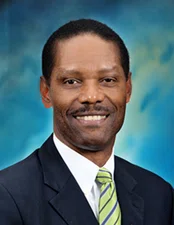Changing times – past, present and future
From the ACSA President, Ron Williams
April 19, 2021

It was a time of events thrusting us into unfamiliar territory far beyond comfort zones. A time of pandemic, wearing masks and social distancing to safeguard others. A time of lockdowns and isolation. A time of new beginnings: working remotely, attending virtual appointments, visiting friends and family via video conferencing, attending school without leaving the house, and having meals and products delivered. A time of reactions … responses of unmitigated egocentrism demanding one’s wants regardless of the harm done to others … responses of utmost humility, selfless love, of putting the needs of others before those of self.
It was a time for intentional learning, reflecting and acting. While simultaneously experiencing and coping with stressful events, we administrators also have embraced our ethical responsibility to educate the nation’s youth.
Regardless of our accumulated wisdom and years of service, we found ourselves cast in the role of learners. Through learning and reflecting, we implemented distance learning, hybrid learning and in-person learning. These successes have challenged us to reflect on unexamined assumptions and act to meet demands of the future.
The ground shifting beneath our feet signals unprecedented societal upheaval. Exponential technological change impacted all aspects of modern life except for our system of education. For centuries, schools viewed learning as the brain’s memorization for purposes of storage and retrieval. The arrival of standardized tests reinforced this narrow view of the brain. The arrival of computers meant information could be stored and retrieved faster and more accurately than the human brain. Why spend enormous amounts of time on committing information to memory when such a need exists for using the brain to investigate, research, synthesize, analyze, evaluate and construct knowledge? We need an education system for the 21st century that teaches students how to think rather than being told what to think (i.e., commit to memory in order to pass tests).
“Why spend enormous amounts of time on committing information to memory when such a need exists for using the brain to investigate, research, synthesize, analyze, evaluate and construct knowledge?”
The ethical use of technology for thinking and communicating is the new frontier for education. The first need is digital infrastructure. Students need access to the internet as well as devices (e.g., computers and laptops), software and applications. The second continual need is attending to real time communications via technologies. The third but simultaneous need is developing digital leaders who can support building capacity for technology use in classrooms. The fourth need is working with stakeholders to build support for transforming the education system.
Technology empowered us to burst forth from our isolation. We must build on this initial energy and direct it to attaining the core proficiency. This consists of digital literacy, technology literacy, interdisciplinary literacy scientific and numerical literacy, historical literacy, and systems thinking.
The work we educators have done this past year is our beginning of a legacy for the 21st century. As we redesign education, we must be extremely mindful that our emerging blueprint represents our best “thinking outside the box” work that future generations can build upon.



